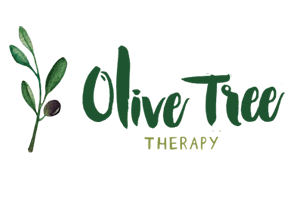The Power of Effective Communication
The Power of One
Ever heard of the saying, ‘you can lead a horse to the water, but you can’t make it drink’. As a Speech Pathologist and a parent, I can relate to this, sounding more like ‘you can have the child move his mouth but you can’t make him talk’… Learning over time, I’ve come to see that children need safety and security before they can open themselves up to you.
Interaction starts with me. Based on the Circle of Security, an intervention that supports parents with young children to connect with their children, adults play a significant role to help children to feel safe and secure. When they do, they are more likely to give interaction and communication a go. Here are some tips:
Always try to be Stronger & Bigger. Be in the moment and use words to provide support. Try to…
Look at your child and show interest in what s/he is doing
Offer help and model ways to ‘express’ his/her need for help. For example, say “I can see you are upset. Would you like me to help you with this puzzle? You can say, ‘Daddy, help.”’
Always try to be Wiser & Kind: Especially when your child is upset. Try to…
Allow yourself the time to go from ‘worry’ to ‘wonder’. Turn “I worry my child will never speak”, to “my child is ________ (e.g. rolling on the floor screaming), I wonder what he is trying to communicate? How can I help him to understand his own feelings and ‘express himself’ that in a better way?”
Be calm and care for yourself. Being kind to yourself is essential before you can be kind to others.
Children communicate in various ways, and all behaviours are communicative. When you, the special and important adult in their lives, take on a ‘I can/we can’ perspective, children will realise that you are in charge, and you are here to help.
Words are powerful, and cuddles are essential.
Learn more about Circle of Security: https://www.youtube.com/watch?v=1wpz8m0BFM8
The Power of Two
Communication is the interaction between two people: a back and forth manoeuvrer. Children learn though their experiences; they learn about what is happening around them through their senses, their exploration of the world and their interactions with you. Amazing things happen in our brains when we interact with people. Studies have shown that there are more activations and connections in the brain when children/people engage in interactions than when they passively receive information. You may want to try some of these tips to increase interactions and support communication:
Be in the moment: turn towards and face the person you’re interacting with
Show interest and ‘wonder’ what the person is thinking and saying
Try to use words to “interpret” what the person might be feeling or wanting
Join in on the back-and-forth interactions and be playful!
One little change in you can make the difference. You will enjoy the enhanced connection and communication!
The Power of Three
Communication can be enhanced by adding some of the following:
Share a book together: Books open up a world of possibilities! Children in particular, benefits from book reading – experiences outside here and now, comprehension, vocabulary, expressive language, literacy skills, writing skills, fun together and more.
Play games together: Games energise your life! Children open up in games, their anxiety go down, they’re more verbal, more motivated to learn and they learn better and more.
Sing a song and be silly: Music and playfulness soothe, regulate, calm and encourages interactions. The melody and beats in music bring a rhythm and help children regulate their body and emotions. When you sing together, they tune in and pay attention to your words. Some children even follow instructions better when you sing them. Why silliness? Try to sing ‘if you’re happy and you know it’ without a smile :)
There are limitless things you can add to your interactions. Involve both parents, siblings, other children, grandparents, and allow social skills to blossom.
Mimi Lu

